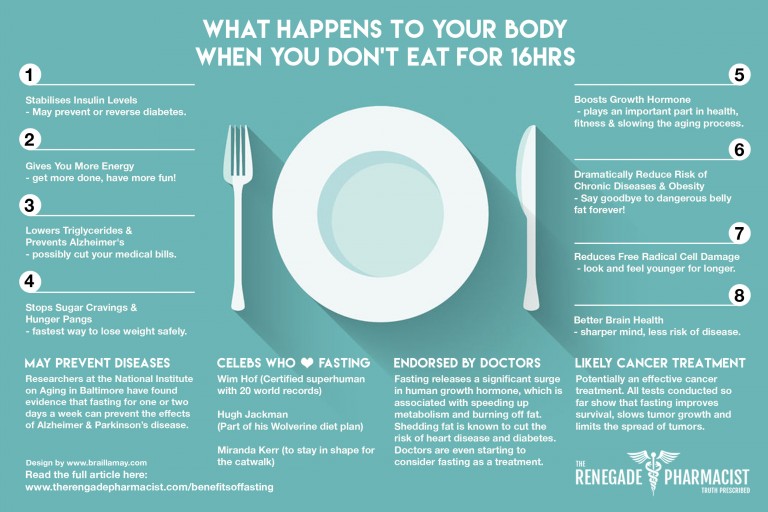Below is an infographic created Niraj Naik, who runs a blog called The Renegade Pharmacist outlining several different health benefits that fasting can have on your body. Most scientists in this field recommend what’s known as intermittent fasting, where you eat healthy in between an 7-8 hour window — for example 12-7 — and then fast for the rest of the time. How often one needs to do this to see results varies for everybody. Further research is still needed to better understand fasting, but experiments done so far are yielding promising results.
These Foods Magically Regrow Themselves From Kitchen Scraps. [Infographic]
For example, recent research has shown that cycles of prolonged fasting protect against immune system damage and induce immune system regeneration. Researchers concluded that fasting shifts stem cells from a dormant state to a state of self-renewal. (source)

Fasting also has shown to have remarkable effects 0n the brain. Here is a TEDx talk given by Mark Mattson about it, the current Chief of the Laboratory of Neuroscience at the National Institute on Aging. Mark and his team have published several papers that discuss how fasting twice a week could significantly lower the risk of developing both Parkinson’s and Alzheimer’s disease. You can find some of those papers sourced within this article.
The 35 Most Powerful Militaries In The World. (Infographics)
Another great place to start if you are looking for an introduction to the science behind fasting is the BBC documentary Eat Fast and Live Longer. It also features more of the world’s top researchers in the field.
Credits: Collective-Evolution.









